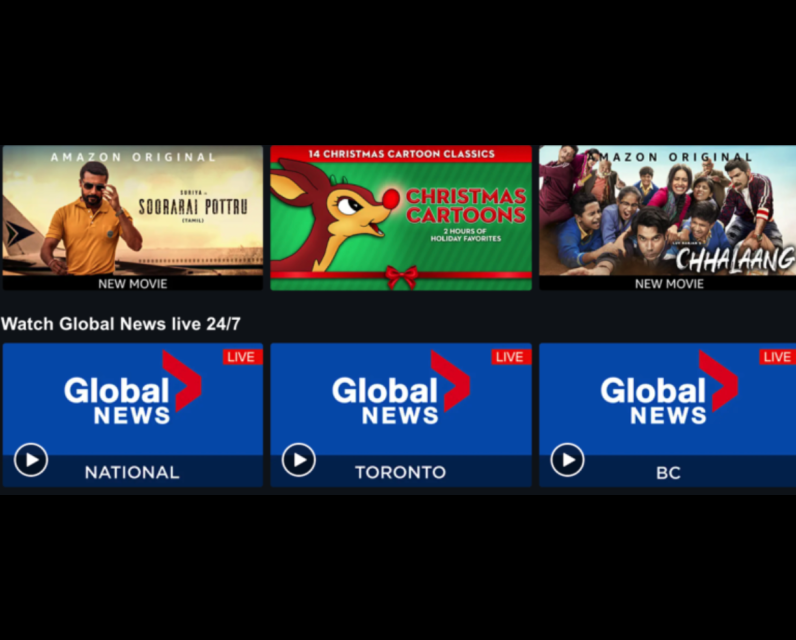Unpublished Opinions
Dr. Michael Geist is a law professor at the University of Ottawa where he holds the Canada Research Chair in Internet and E-commerce Law. He has obtained a Bachelor of Laws (LL.B.) degree from Osgoode Hall Law School in Toronto, Master of Laws (LL.M.) degrees from Cambridge University in the UK and Columbia Law School in New York, and a Doctorate in Law (J.S.D.) from Columbia Law School. Dr. Geist is a syndicated columnist on technology law issues with his regular column appearing in the Toronto Star, the Hill Times, and the Tyee. Dr. Geist is the editor of several copyright books including The Copyright Pentalogy: How the Supreme Court of Canada Shook the Foundations of Canadian Copyright Law (2013, University of Ottawa Press), From “Radical Extremism” to “Balanced Copyright”: Canadian Copyright and the Digital Agenda (2010, Irwin Law) and In the Public Interest: The Future of Canadian Copyright Law (2005, Irwin Law), the editor of several monthly technology law publications, and the author of a popular blog on Internet and intellectual property law issues.
Dr. Geist serves on many boards, including the CANARIE Board of Directors, the Canadian Legal Information Institute Board of Directors, the Canadian Internet Registration Authority, and the Electronic Frontier Foundation Advisory Board. He has received numerous awards for his work including the Kroeger Award for Policy Leadership and the Public Knowledge IP3 Award in 2010, the Les Fowlie Award for Intellectual Freedom from the Ontario Library Association in 2009, the Electronic Frontier Foundation’s Pioneer Award in 2008, Canarie’s IWAY Public Leadership Award for his contribution to the development of the Internet in Canada and he was named one of Canada’s Top 40 Under 40 in 2003. In 2010, Managing Intellectual Property named him on the 50 most influential people on intellectual property in the world and Canadian Lawyer named him one of the 25 most influential lawyers in Canada in 2011, 2012 and 2013.
Click here to view Dr. Geist’s full CV.
The Broadcasting Act Blunder, Day Four: Why Many News Sites Are Captured by Bill C-10

The Broadcasting Act Blunder series has covered claims by Canadian Heritage Minister Steven Guilbeault that the bill contains significant economic thresholds as a guardrail against over-regulation. As I noted, the bill does no such thing, though the CRTC will be able to establish regulatory exemptions once it conducts extensive hearings on implementing the legislation should it pass (prior posts in the Broadcasting Act Blunder series include Day 1: Why there is no Canadian Content Crisis, Day 2: What the Government Doesn’t Say About Creating a “Level Playing Field”, Day 3: Minister Guilbeault Says Bill C-10 Contains Economic Thresholds That Limit Internet Regulation. It Doesn’t).
Guilbeault also told the House of Commons that news is excluded from his bill:
Bear in mind that we are imposing a number of guardrails. As I said earlier, user-generated content, news content and video games would not be subject to the new regulations.
Guilbeault may have been thinking about the controversy earlier this year when he said regulating news sites “was no big deal”, but this is inaccurate as the bill does not exempt news. Unless exempted by the CRTC, that would mean that news sites that rely on video or audio would be caught by the bill. It is worth noting that even some Internet video streaming services such as Amazon Prime already feature news programming.
Why are online sites and services that offer news in video or audio form captured by the bill?
Online undertakings are defined in the bill as “an undertaking for the transmission or retransmission of programs over the Internet for reception by the public by means of broadcasting receiving apparatus.” In other words, transmitting programs over the Internet makes you an online undertaking. The Broadcasting Act defines a program as:
program means sounds or visual images, or a combination of sounds and visual images, that are intended to inform, enlighten or entertain, but does not include visual images, whether or not combined with sounds, that consist predominantly of alphanumeric text
So long as the news is not predominantly alphanumeric text, it is treated as a program under the Act and online undertakings that transmit programs are subject to regulation. The CRTC has played a role in regulating news for conventional broadcasters including ensuring broadcasters participate in codes of conduct and meet their news broadcast obligations. By treating online undertakings, programming undertakings (ie. conventional broadcasters), and distribution undertakings (cable and satellite) all as broadcast undertakings, the regulatory framework applies.
Bill C-10 includes a specific exclusion for user generated content, but does not contain a specific exemption for news content nor has the government indicated that intends to issue a policy direction to that effect (they have said they will do so for video games). The Canadian Heritage departmental information includes an FAQ that says news sites that do not predominantly display text are not captured by the Act. What that doesn’t say is that those news sites and organizations that rely on audio and video will be regulated by the new Broadcasting Act. Further, the FAQ says the bill does not licence news organizations. While it is true that there is no licence requirement, that is because there is no licence requirement for online undertakings. Those entities – including video news sites – will be required to register with the CRTC, likely be required to provide confidential business information, and potentially required to meet discoverability requirements to make Canadian content more visible.
The potential scope of news sites regulation is vast, covering everything from the Rebel (which sells video subscriptions) to podcast networks like Canadaland. The law also applies to foreign sites, raising the possibility that sites with considerable audio and video and significant Canadian subscribers such as New York Times could be captured as well. As with economic thresholds, it will be open to the CRTC to decide what obligations online undertakings should face with regard to news or to potentially exempt some of these services. However, as it stands now, Guilbeault is incorrect when he claims that Bill C-10 excludes news since the bill opens the door to regulation and creates uncertainty by leaving it to the CRTC to determine precisely what regulatory obligations or exemptions might apply.



Comments
Be the first to comment